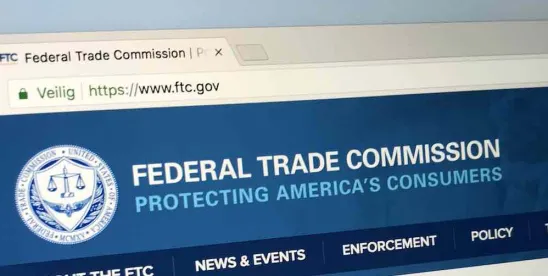A Pennsylvania company has dropped its challenge to the Federal Trade Commission’s (FTC) noncompete ban after a Pennsylvania federal judge denied the company’s bid to block the rule. The dismissal of the Pennsylvania lawsuit leaves the fate of the ban to potential appeals from two federal court decisions, one in Florida and the other in Texas, that found in favor of the business plaintiffs.
Quick Hits
- A Pennsylvania company dropped its lawsuit challenging the FTC’s noncompete rule after a judge refused to enjoin it.
- The move leaves the fate of the rule to litigation stemming from Florida and Texas federal courts that have ruled against it.
- The rule is currently enjoined nationwide based on the Texas court’s order.
- The FTC’s noncompete rule would effectively ban all noncompete agreements between employers and employees.
On October 4, 2024, ATS Tree Services, LLC, filed a notice of voluntary dismissal in the U.S. District Court for the Eastern District of Pennsylvania to drop its legal challenge to the FTC’s noncompete rule, which seeks to ban nearly all noncompete agreements in employment.
The notice of dismissal in ATS Tree Services, LLC v. Federal Trade Commission comes one day after U.S. District Judge Kelley Brisbon Hodge denied the company’s bid to put the case on hold pending potential appeals in separate Florida and Texas challenges. Judge Hodge previously denied a bid for a preliminary injunction in July 2024.
The FTC’s final rule, which the FTC voted 3–2 to approve in April 2023, was scheduled to go into effect on September 4, 2024. However, in August 2024, the U.S. District Court for the Northern District of Texas, in Ryan LLC v. Federal Trade Commission, issued a final judgment permanently enjoining the rule nationwide. That ruling expanded a narrower preliminary injunction, finding that the rule exceeded the FTC’s statutory authority.
The FTC has until October 20, 2024, to appeal that judgment to the U.S. Court of Appeals for the Fifth Circuit.
Separately, in Properties of the Villages, Inc. v. Federal Trade Commission, a judge for the U.S. District Court for the Middle District of Florida issued a preliminary injunction limited to the party in that case following a hearing in August 2024. The court found that the rule likely fell under the “major questions doctrine,” which requires agencies to “point to clear congressional authorization” when they issue rules of “extraordinary … economic and political significance.”
In September, the FTC filed a notice of appeal in the Properties of the Villages case, seeking to overturn the preliminary injunction in the Eleventh Circuit.
On the other hand, the judge in the ATS Tree Services case rejected the argument that the noncompete rule exceeded the FTC’s statutory authority, finding instead that the rule fell within the FTC’s broad authority to regulate “unfair methods of competition” under Section 6 of the Federal Trade Commission Act of 1914.
The FTC noncompete rule seeks to ban nearly all noncompete agreements and provisions that function as noncompete agreements between employers and workers as “unfair method[s] of competition.” The rule would further prohibit employers from enforcing most existing such agreements and notify their employees that any such agreements would no longer be enforceable.
Next Steps
While most experts believe that the rule will not survive in the event it goes to the Supreme Court of the United States, the voluntary dismissal of the Pennsylvania lawsuit and elimination of a potential appeal avoids potential conflicting rulings between the circuit courts of appeal that could have made it somewhat more likely that the rule will be upheld, particularly if the Third Circuit were to affirm Judge Hodge’s ruling.
For opponents of the noncompete ban, litigation stemming from the Florida and Texas cases is a better posture as both ruled against the FTC, especially with the Texas court’s forceful ruling permanently blocking the rule nationwide.
For now, the rule remains enjoined. At the same time, the FTC has shown that it plans to defend the rule in the appellate courts by appealing the Florida preliminary injunction in Properties of the Villages and potentially to the Supreme Court. It is unclear whether the FTC has similar plans to appeal the Ryan case.





 />i
/>i
